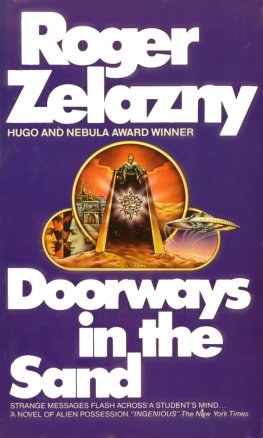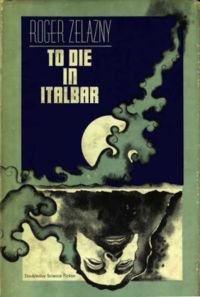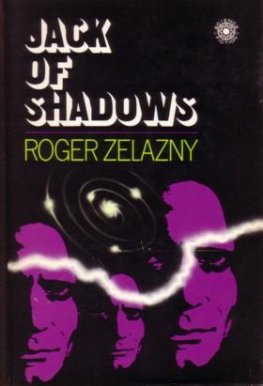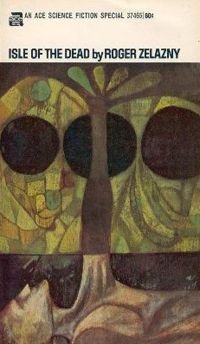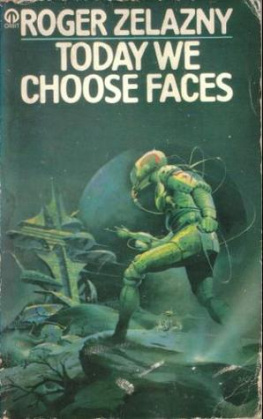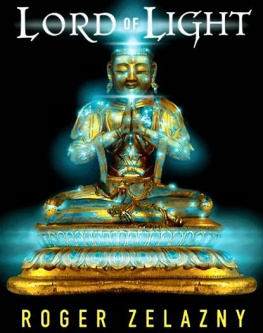Roger Zelazny - A Museum Piece
Here you can read online Roger Zelazny - A Museum Piece full text of the book (entire story) in english for free. Download pdf and epub, get meaning, cover and reviews about this ebook. year: 1963, genre: History. Description of the work, (preface) as well as reviews are available. Best literature library LitArk.com created for fans of good reading and offers a wide selection of genres:
Romance novel
Science fiction
Adventure
Detective
Science
History
Home and family
Prose
Art
Politics
Computer
Non-fiction
Religion
Business
Children
Humor
Choose a favorite category and find really read worthwhile books. Enjoy immersion in the world of imagination, feel the emotions of the characters or learn something new for yourself, make an fascinating discovery.

- Book:A Museum Piece
- Author:
- Genre:
- Year:1963
- Rating:4 / 5
- Favourites:Add to favourites
- Your mark:
- 80
- 1
- 2
- 3
- 4
- 5
A Museum Piece: summary, description and annotation
We offer to read an annotation, description, summary or preface (depends on what the author of the book "A Museum Piece" wrote himself). If you haven't found the necessary information about the book — write in the comments, we will try to find it.
A Museum Piece — read online for free the complete book (whole text) full work
Below is the text of the book, divided by pages. System saving the place of the last page read, allows you to conveniently read the book "A Museum Piece" online for free, without having to search again every time where you left off. Put a bookmark, and you can go to the page where you finished reading at any time.
Font size:
Interval:
Bookmark:
Roger Zelazny. A Museum Piece
Forced to admit that his art was going unnoticed in a frivolous world, Jay Smith decided to get out of that world. The four dollars and ninety-eight cents he spent for a mail order course entitled Yogathe Path to Freedom did not, however, help to free him. Rather, it served to accentuate his humanity, in that it reduced his ability to purchase food by four dollars and ninety-eight cents.
Seated in a padmasana, Smith contemplated little but the fact that his navel drew slightly closer to his backbone with each day that passed. While nirvana is a reasonably esthetic concept, suicide assuredly is not, particularly if you havent the stomach for it. So he dismissed the fatalistic notion quite reasonably.
How simply one could take ones own life in ideal surroundings! he sighed, (tossing his golden locks which, for obvious reasons, had achieved classically impressive lengths). The fat stoic in his bath, fanned by slave girls and sipping his wine, as a faithful Greek leech opens his veins, eyes downcast! One delicate Circassian, he sighed again, there perhaps, plucking upon a lyre as he dictates his funeral orationthe latter to be read by a faithful countryman, eyes all a-blink. How easily he might do it! But the fallen artistsay! Born yesterday and scorned today he goes, like the elephant to his graveyard, alone and secret!
He rose to his full height of six feet, one and a half inches, and swung to face the mirror. Regarding his skin, pallid as marble, and his straight nose, broad forehead, and wide-spaced eyes, he decided that if one could not live by creating art, then one might do worse that turn the thing the other way about, so to speak.
He flexed those thews which had earned him half-tuition as a halfback for the four years in which he had stoked the stithy of his soul to the forging out of a movement all his own: two-dimensional painted sculpture.
Viewed in the round, one crabbed critic had noted, Mister Smiths offerings are either frescoes without walls or vertical lines. The Etruscans excelled in the former form because they knew where it belonged; kindergartens inculcate a mastery of the latter in all five-year-olds.
Cleverness! More cleverness! Bah! He was sick of those Johnsons who laid down the law at someone elses dinner table!
He noted with satisfaction that his month-long ascetic regime had reduced his weight by thirty pounds to a mere two twenty-five. He decided that he could pass as a Beaten Gladiator, post-Hellenic.
It is settled, he pronounced. Ill be art. Later that afternoon a lone figure entered the Museum of Art, a bundle beneath his arm.
Spiritually haggard (although clean-shaven to the armpits), Smith loitered about the Greek Period until it was emptied of all but himself and marble.
He selected a dark corner and unwrapped his pedestal. He secreted the various personal things necessary for a showcase existence, including most of his clothing, in its hollow bottom.
Good-bye, world, he renounced, you should treat your artists better, and mounted the pedestal.
His food money had not been completely wasted, for the techniques he had mastered for four ninety-eight while on the Path to Freedom, had given him a muscular control such as allowed him perfect, motionless statuity whenever the wispy, middle-aged woman followed by forty-four children under age nine, left her chartered bus at the curb and passed through the Greek Period, as she did every Tuesday and Thursday between 9:35 and 9:40 in the morning. Fortunately, he had selected a seated posture.
Before the week passed he had also timed the watchmans movements to an alternate tick of the huge clock in the adjacent gallery (a delicate Eighteenth Century timepiece, all of gold leaf, enamel, and small angels who chased one another around in circles). He should have hated being reported stolen during the first week of his career, with nothing to face then but the prospect of second-rate galleries or an uneasy role in the cheerless private collections of cheerless and private collectors. Therefore, he moved judiciously when raiding staples from the stores in the downstairs lunch room, and strove to work out a sympathetic bond with the racing angels. The directors had never seen fit to secure the refrigerator or pantry from depredations by the exhibits, and he applauded their lack of imagination. He nibbled at boiled ham and pumpernickel (light), and munched ice cream bars by the dozen. After a month he was forced to take calisthenics (heavy) in the Bronze Age.
Oh, lost! he reflected amidst the Neos, surveying the kingdom he had once staked out as his own. He wept over the statue of Achilles Fallen as though it were his own. It was.
As in a mirror, he regarded himself in a handy collage of bolts and nutshells. If you had not sold out, he accused, if you had hung on a little longerlike these, the simplest of Arts creaturesBut no! It could not be!
Could it? he addressed a particularly symmetrical mobile overhead. Could it?
Perhaps, came an answer from nowhere, which sent him flying back to his pedestal.
But little came of it. The watchman had been taking guilty delight in a buxom Rubens on the other side of the building and had not overheard the colloquy. Smith decided that the reply signified his accidental nearing of Dharana. He returned to the Path, redoubling his efforts toward negation and looking Beaten. In the days that followed he heard occasional chuckling and whispering, which he at first dismissed as the chortlings of the children of Mara and Maya, intent upon his distractions. Later, he was less certain, but by then he had decided upon a classical attitude of passive inquisitiveness.
And one spring day, as green and golden as a poem by Dylan Thomas, a girl entered the Greek Period and looked about, furtively. He found it difficult to maintain his marbly placidity, for lo! she began to disrobe!
And a square parcel on the floor, in a plain wrapper. It could only mean
Competition!
He coughed politely, softly, classically
She jerked to an amazing attention, reminding him of a womens underwear ad having to do with Thermopylae. Her hair was the correct color for the undertakingthat palest shade of Parian manageableand her gray eyes glittered with the icy-orbed intentness of Athene.
She surveyed the room minutely, guiltily, attractively
Surely stone is not susceptible to virus infections, she decided. Tis but my guilty conscience that cleared its throat. Conscience, thus do I cast thee off!
And she proceeded to become Hecuba Lamenting, diagonally across from the Beaten Gladiator and fortunately, not facing in his direction. She handled it pretty well, too, he grudgingly admitted. Soon she achieved an esthetic immobility. After a period of appraisal he decided that Athens was indeed mother of all the arts; she simply could not have carried it as Renaissance nor Romanesque. This made him feel rather good.
When the great doors finally swung shut and the alarms had been set she heaved a sigh and sprang to the floor.
Not yet, he cautioned, the watchman will pass through in ninety-three seconds.
She had presence of mind sufficient to stifle her scream, a delicate hand with which to do it, and eighty-seven seconds in which to become Hecuba Lamenting once more. This she did, and he admired her delicate hand and her presence of mind for the next eighty-seven seconds. The watch man came, was nigh, was gone, flashlight and beard bobbing in musty will o the-wispfulness through the gloom.
Goodness! she expelled her breath. I had thought I was alone!
And correctly so, he replied. Naked and alone we come into exileAmong bright stars on this most weary unbright cinder, lostOh, lost
Thomas Wolfe, she stated.
Next pageFont size:
Interval:
Bookmark:
Similar books «A Museum Piece»
Look at similar books to A Museum Piece. We have selected literature similar in name and meaning in the hope of providing readers with more options to find new, interesting, not yet read works.
Discussion, reviews of the book A Museum Piece and just readers' own opinions. Leave your comments, write what you think about the work, its meaning or the main characters. Specify what exactly you liked and what you didn't like, and why you think so.

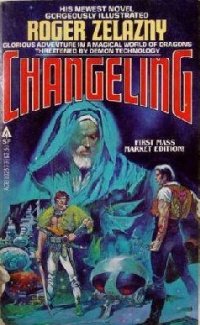
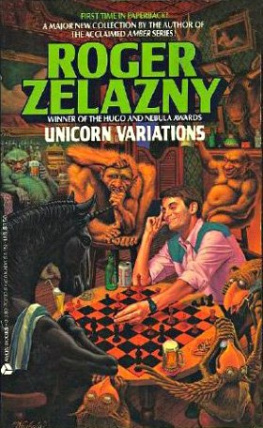
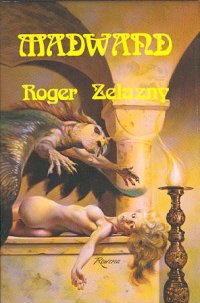
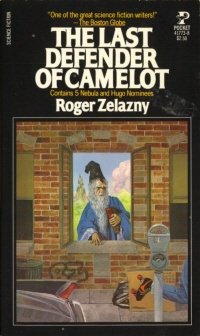
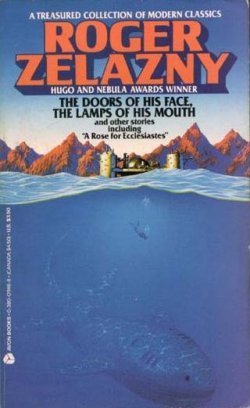
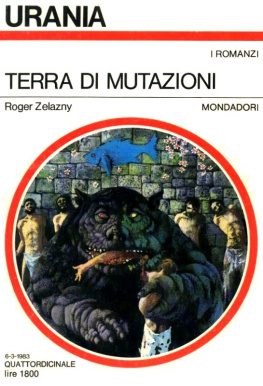
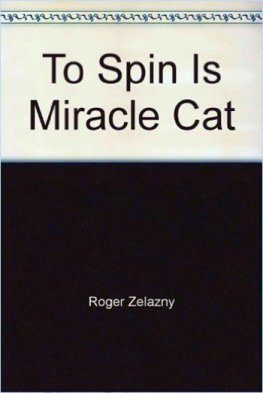
![Roger Zelazny - 24 Views of Mt. Fuji, by Hokusai [Illustrated]](/uploads/posts/book/536181/thumbs/roger-zelazny-24-views-of-mt-fuji-by-hokusai.jpg)
